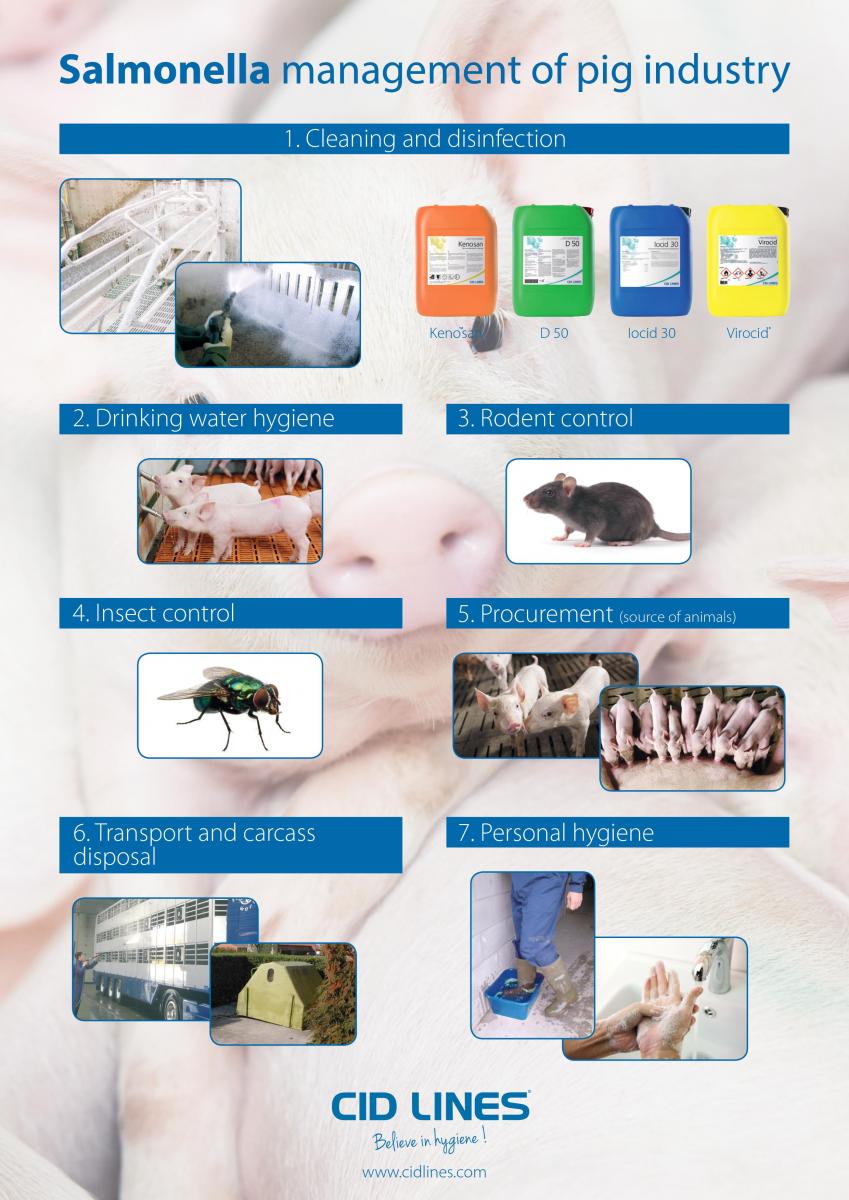There are more than 2500 Salmonella serovars recorded but the European commission observed flock prevalence for the five most reported serovars, which are S. enteritidis (10.9 per cent), S. typhimurium (0.5 per cent), S. infantis (2.2 per cent), S. mbandaka (0.4 per cent), S. hadar (1.1 per cent) and others (6.6 per cent) (EFSA Journal, 2011).
The prevalence of these serovars is country specific. Because of this hazard to public health the European Union imposed in 2003 a regulation (EC) No. 2160/2003 on the control of Salmonella and other specified food-borne zoonotic agents.
For the pig industry this meant a monitoring program was installed and rules were established to avoid the introduction of Salmonella on the farm.
The CID LINES Salmonella program covers both vertical and horizontal transmission routes and offers a clear guideline with hygiene solutions for each critical control point on the farm.

